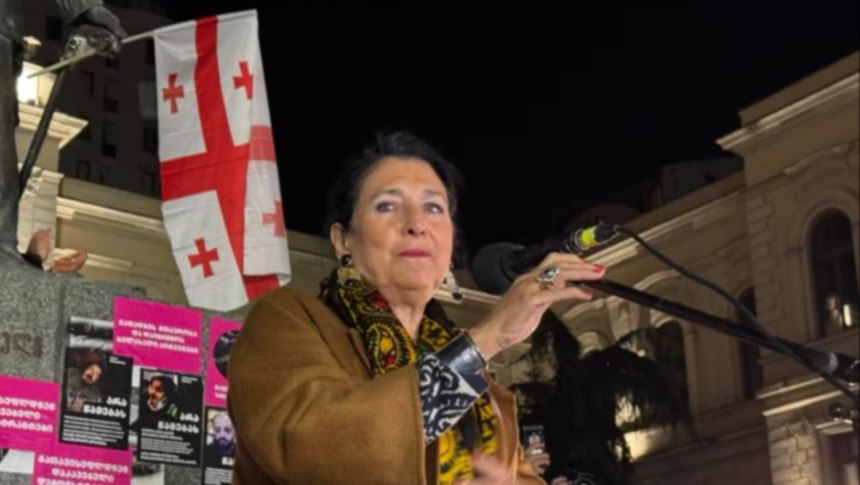Georgian President Salome Zurabishvili calls on the ruling Georgian Dream party to set a date for new elections amid accusations of electoral fraud, protests, and tensions with the EU.
Georgian President Salome Zurabishvili has called on the ruling Georgian Dream party to announce a date for new parliamentary elections by December 29, citing escalating political unrest and accusations of electoral fraud during the October elections, reports RFE.
In a public address on December 22, Zurabishvili invited Bidzina Ivanishvili, the founder of Georgian Dream and a former prime minister known for his ties with Russia, to the presidential palace for discussions on resolving the political crisis. She emphasized that the election date must be agreed upon before the end of the year to restore public trust and avoid further political turmoil.
Electoral Disputes and Protests
The October parliamentary elections, dominated by claims of vote-rigging, have sparked daily protests. Opposition parties have refused to recognize the election results, accusing Georgian Dream of manipulating votes to maintain power. The Organization for Security and Cooperation in Europe (OSCE) criticized the elections in its final report, citing concerns about electoral integrity and the impact of a controversial “foreign agents” law passed earlier this year.
The protests intensified after Georgian Dream announced it would delay negotiations with the European Union until 2028, a move seen as a significant setback for Georgia’s EU candidacy. The EU remains Georgia’s largest donor, trading partner, and a key supporter of its democratic development.
Tensions with the EU and Civil Society
Relations between Georgia and the EU have been strained by the adoption of the “foreign agents” law, modeled after a similar Russian regulation. Critics argue the law undermines fundamental freedoms and targets civil society and independent media. The legislation requires organizations receiving substantial foreign funding to register as “foreign agents,” raising fears of increased government control.
Despite domestic and international backlash, the law went into effect on August 1. Georgian Dream has promised amendments to the legislation but has yet to provide details.
Zurabishvili’s Role Amid Crisis
While Zurabishvili holds a largely ceremonial position as president, she has been a vocal critic of Georgian Dream’s increasingly authoritarian tendencies. Initially supported by the party during her 2018 presidential campaign, she has since become an outspoken opponent.
As her term concludes, Zurabishvili has refused to back down. She rejected the recent election of Mikheil Kavelashvili, a populist right-wing figure, as her successor, further deepening the political divide.
Looking Ahead
The political crisis shows no signs of abating. Zurabishvili’s call for an election date comes as Georgian Dream prepares for the inauguration of the new president on December 29. The opposition and civil society groups continue to demand accountability and reforms to ensure Georgia’s democratic future.
Georgia’s path to EU integration, once a widely supported national priority, now hangs in the balance as tensions between the government and opposition escalate.







